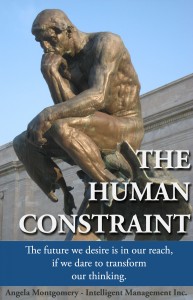
Times are changing fast and leaders need to adapt. We have evolved far beyond a simple situation where people just need to be told what to do. We suggest four essential qualities required for 21st century leadership.
Number One: A leader must have real knowledge
A leader in today’s complex world cannot be a person who improvises. It’s true that today there is a wealth of information readily available about every subject matter. We are swamped with information and tips, but as Dr. W. Edwards Deming has pointed out, information is random whereas knowledge is orderly and cumulative. A leader today must, by definition, be somebody who has a theory, who “owns” a body of knowledge, not just information, so they can back their claim to be able to accomplish a transformation within their span of control. Theory is not the opposite of practice. Theory is what allows solid practice to happen.
What kind of transformation? Breaking free of the prison of silos towards whole system optimization as a prerequisite for true and continuous innovation. This requires a different mindset. It means shifting away from any kind of command and control style leadership. Instead, the new whole-system approach to leadership is one where:
- competition is replaced by cooperation;
- performance is managed systemically, not judged, using appropriate statistical thinking;
- teamwork is fostered rather than the ranking of individuals.
Number Two: A leader must walk the talk
Knowledge is mandatory but it is not enough. A leader must be able to get their message across; they must be able to address their people in a
way that touches their brains but also their hearts. A leader must also have fortitude; they have to “walk the talk” and be an example. A leader has to have the strength that it takes to accomplish something that probably only they have the vision for, and they must be able to clearly communicate that vision. In order for that vision to happen, a leader must have an action plan, a step-by-step guide that people can understand and execute. These are all necessary attributes for a leader, but they are not sufficient.
Number Three: A leader must be selfless
We have evolved far beyond a simple situation where people just need to be told what to do. A leader of an interconnected organization must provide their people with a vision of life; their words and actions must elevate people’s faith in the possibility to build a better world.
A leader must be selfless and seek no power; on the contrary they see their job as service. This is not because they are weak but because they understand their role in the world. A leader, at their very core, is an enabler of people’s potential. One of the greatest spiritual leaders of our times, Rabbi Menachem Mendel Schneerson, said
“a leader has to be a reflection of our own light back to us, so we may see ourselves anew.”
Number Four: A leader must enable others to be leaders
A leader must aim at creating other leaders not followers; they do so by elevating their people’s ability to address their inner drives and cater for their primal fears. They seek no control over people’s emotions; they empower them, they give them the possibility to be the best they can.
A leader understands that we live in a world where interconnections and interdependencies easily go beyond our ability to fully comprehend them. There is only one meaningful role for a leader to play in this interconnected network: to act as an enabler so that the organization can deliver its purpose.
(Image by Olga Bast )
Contact: intelligentmanagement@sechel.ws
SCHEDULE AN INTRODUCTORY CALL WITH US







Leave a Reply